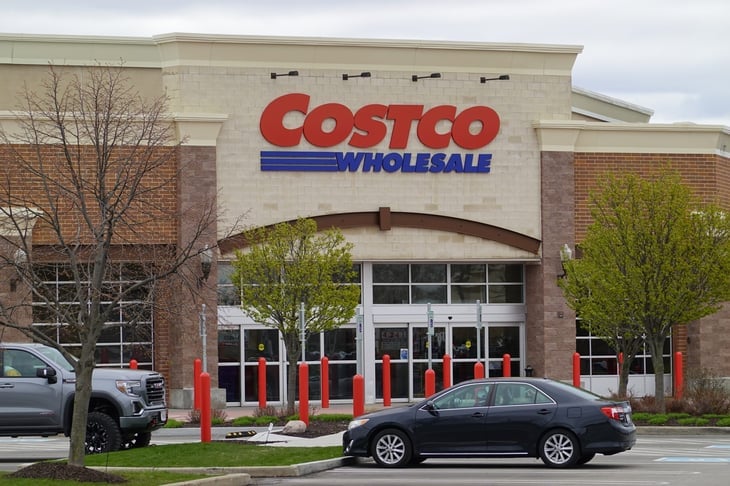
Costco’s Kirkland Signature house brand is vast, offering everything from a four-pack of left-hand gloves for right-handed golfers to a 400-softgel bottle of stool softener, all under the same roof and at prices among the lowest.
A combination of price and quality makes the private label a go-to for the basics and beyond. Here and there, though, a few clunkers emerge.
Read on to see for yourself these Kirkland Signature products that you might want to avoid or at least think twice about.
1. Kirkland Signature Organic Lemonade
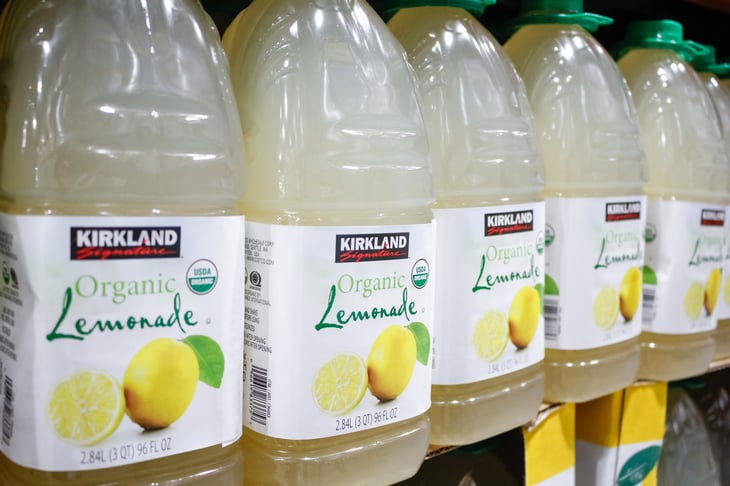
Sugar is the third ingredient in Kirkland Signature Organic Lemonade, after water and lemon juice. One little 8-ounce serving contains 29 grams — about 2 tablespoons — of added sugar. That’s more sugar than the American Heart Association recommends a woman should consume in an entire day (25 grams) and almost as much as the AHA’s daily limit for men (36 grams).
2. Kirkland Signature Bath Tissue
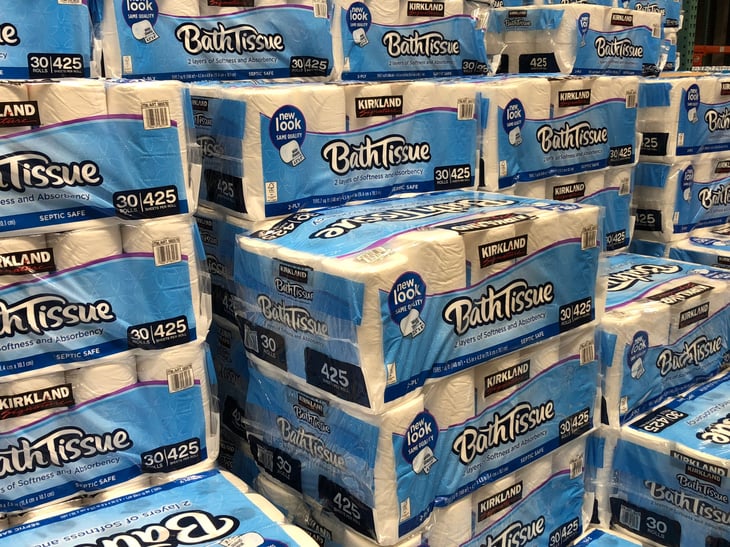
You’d think that Kirkland Signature brand bath tissue would be a stand-out way to save. But research by Passionate Penny Pincher found no difference in per-unit price between Kirkland Signature toilet paper and store-brand products at Aldi, Sam's Club, Target and Walmart: In the frugal shopping blog’s latest annual price comparison sheet, each chain’s TP price came out to $0.002 per sheet.
And, at Costco, you need to buy a huge 30-roll package.
Passionate Penny Pincher recently asked its readers about Kirkland Signature products they’d recommend avoiding. Several mentioned disliking the TP:
- “Toilet paper — too thin and linty,” one contributor says.
- “The toilet paper was much better pre-Covid, then it changed,” writes another.
- Another, who “love[s]” most Kirkland Signature products, like Sam’s Club’s tissue better than Costo’s.
Consumer Reports sides with the critics. Its bathroom tissue review gives Kirkland Signature TP a rating of 37, near the bottom of the list. It lost points for strength but scored well for softness.
3. Kirkland Signature milk
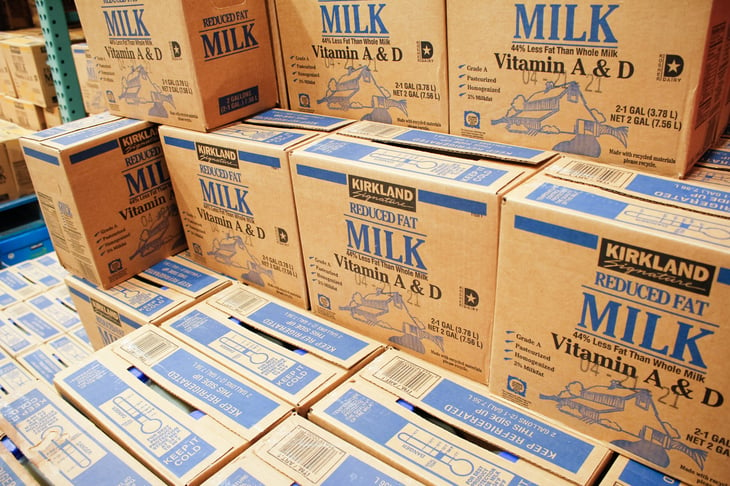
Consumers have complained for years about Kirkland Signature milk’s blocky, squarish containers. Critics complain that they are accident-prone and unwieldy.
Julie Ramhold, senior blog staff writer at DealNews.com, tells GOBankingRates:
“Personally, I can vouch for this one. I can’t think of a single time I’ve used those jugs and not spilled at least a little milk when pouring.”
Costco’s been struggling with the milk jug problem since at least 2008. The issue requires Costco to, er, juggle concerns about the environment and shipping costs with the user complaints.
Kirkland milk is not the cheapest, either. Passionate Penny Pincher’s most recent cost survey found it selling for $3.65 per gallon and Sam’s Club milk selling for $3.67 per gallon — easily the highest prices in a lineup including Aldi ($3.02), Target ($2.99) and Walmart ($3.03).
4. Kirkland Signature Bacon Crumbles
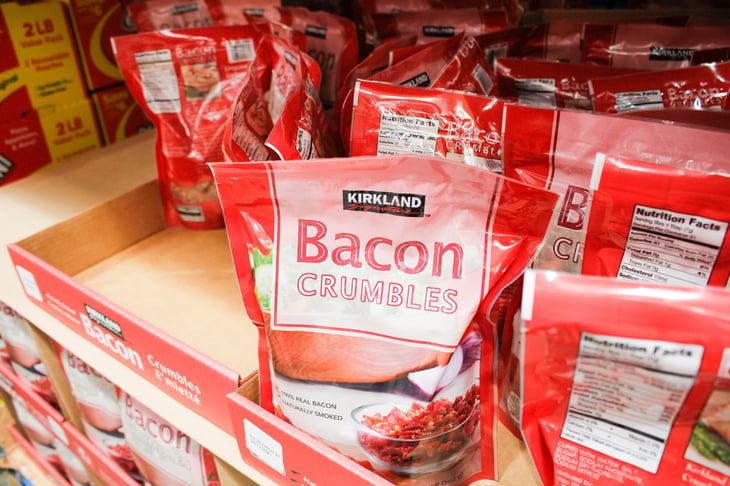
If you enjoy bacon, you might hate us for this, but hear us out.
First, Kirkland Signature Bacon Crumbles contains sodium nitrate and sodium phosphate. Experts ranging from Harvard Medical School to Consumer Reports advise consumers to steer clear of meat cured with nitrates: The body converts them into a substance believed to be carcinogenic. Sodium phosphate can be a health risk for some people, especially people with kidney disease, cardiovascular disease or intestinal issues.
Second, the World Health Organization declared processed meat carcinogenic to humans back in 2015. Since then, studies have linked eating even small amounts of processed meat to other health problems — for instance, higher risk of death by a major heart disease-related event (such as a heart attack).
5. Kirkland Signature rotisserie chicken
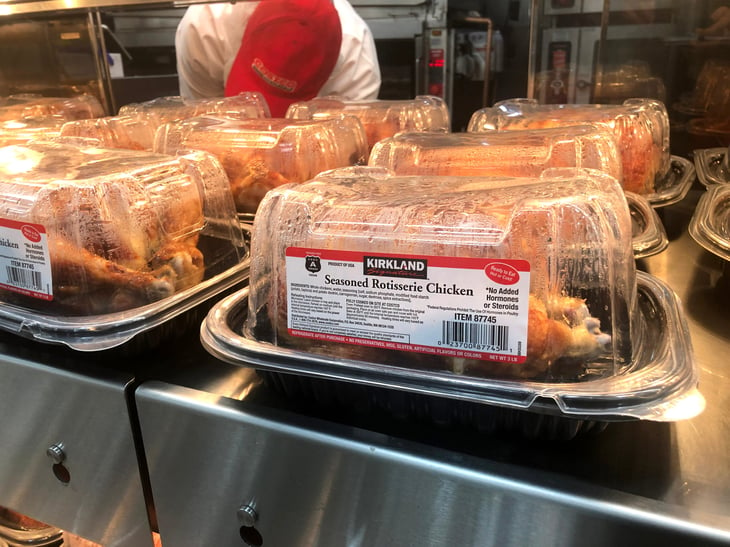
Yes, we also are skewering another sacred, uh, cow: Costco’s beloved — and delicious — $4.99 rotisserie chickens.
Conditions under which the birds are raised have been the subject of criticisms, including a 2021 undercover investigation by animal advocates and even a 2022 lawsuit filed by two Costco shareholders alleging animal cruelty.
There’s room for concern about the health of Costco’s consumers, too. When we checked a local Costco for this article, the third ingredient on the label, after chicken and water, is a “seasoning” mix whose first ingredient is salt. Consumer Reports has also called out the Kirkland Signature product over its salt content.
You probably don’t need us to tell you that too much salt is unhealthy. But it’s worth remembering that, as the Harvard T.H. Chan School of Public Health notes:
“… too much sodium in the diet can lead to high blood pressure, heart disease, and stroke. It can also cause calcium losses, some of which may be pulled from bone. Most Americans consume at least 1.5 teaspoons of salt per day, or about 3400 mg of sodium, which contains far more than our bodies need.”
We also found that Costco’s rotisserie chicken contains carrageenan, an additive that Consumer Reports cautions against. Why? It causes inflammation, which is tied to many major diseases, including cancer, arthritis and diabetes).
6. Kirkland Signature stainless steel 6-burner gas grill
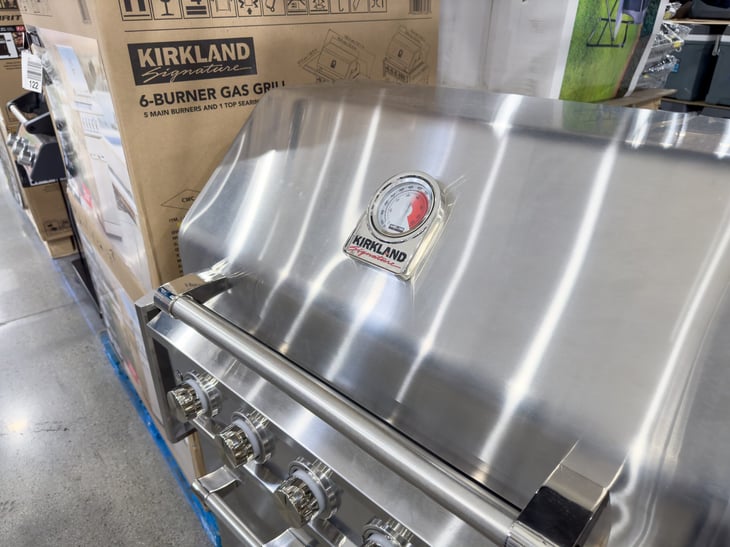
This particular gas grill, the cheapest of three that Kirkland Signature offers, has many complaints compared to typical products on Costco’s website, with about 29% of all its reviews for the grill being one- to three-star reviews as of this writing. Complaints range from confusing printed instructions and difficulties assembling the grill to defective parts and safety concerns with the gas burners.
“Purchased mid April. Returned nearly 6 weeks later,” customer “bpmx” wrote in a one-star review. “Assembly should have been easier; it took a lot of forced effort to line up the two front doors. Ignitor never worked. We used it once and had to light it with a match.”
Costco’s online customer service typically responds with sympathy. One user pointed out that Costco’s generous return policy makes expensive purchases much less risky than otherwise. Others are peeved.
“While Costco’s return policy is generous, it’s still frustrating to receive a defective product, and I’d prefer to spend my time and money on a product that meets my expectations right out of the box,” wrote “chitownsam,” who gave the grill one star.
Despite giving the grill three stars, another customer, “J Stewart,” wrote:
“Costco should be ashamed of itself. Quality of construction highly questionable. Overpriced by about double! Very disappointed. Had another Kirkland branded stainless grill from years ago (lost it in a divorce). This one is inferior to the other one. Flimsy sides and careless workmanship. How could they put the Kirkland logo on this thing?”
7. Kirkland Signature olive oils
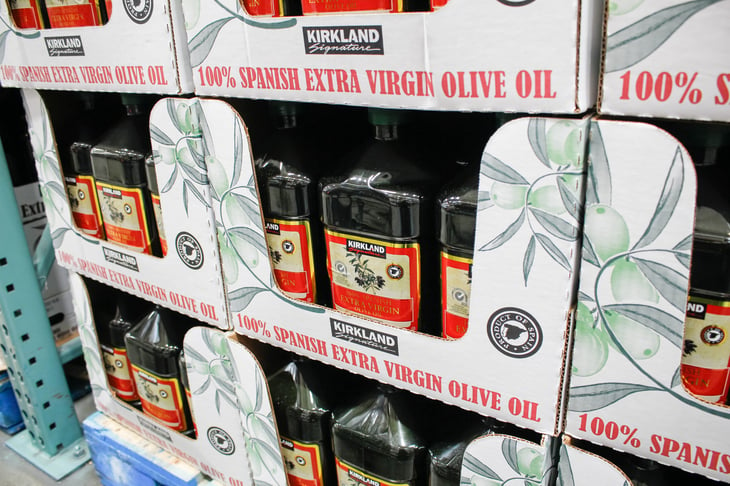
Kirkland Signature Extra Virgin Olive Oil and the organic version both come in a 2-liter (about a half-gallon) container. And if you want Kirkland Signature Refined Olive Oil, you’ll have to buy a two-pack of 3-liter containers (about 1.6 gallons in total).
Unless you’re running a restaurant or have a big, hungry family, that’s a lot of olive oil. It stands to go rancid or at least lose its freshness well before you get to the bottom of the container.
The University of Connecticut’s Healthy Family Connecticut program says: “Opened containers of oil are best if used within 2-3 months while unopened oil is good for up to 4 months.”
The Olive Center at the University of California, Davis, is much more conservative: “To enjoy extra virgin olive oil at its best, buy in a container size that that can be finished in about six weeks or so. Freshness will diminish with time.”
Bottom line: A good price on olive oil is no bargain if you can’t use it all before it goes bad.





Add a Comment
Our Policy: We welcome relevant and respectful comments in order to foster healthy and informative discussions. All other comments may be removed. Comments with links are automatically held for moderation.